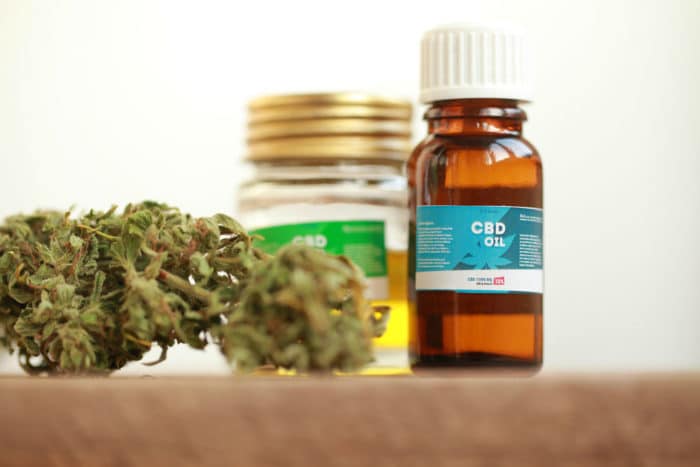Amid the COVID-19 pandemic, a number of cannabis companies that advertised CBD products as effective in preventing or treating COVID-19 without obtaining U.S. Food and Drug Administration (FDA) approval have become targets of Federal Trade Commission (FTC) enforcement actions. By way of example, on April 22, 2020, the FTC filed an administrative complaint against Marc Ching, individually and as Whole Leaf Organics, to cease unfair or deceptive practices and false advertisements for products affecting commerce in violation of the Federal Trade Commission Act. Two days later, the FTC petitioned the Unites States District Court, Central District of California, to enter a temporary restraining order and grant a preliminary injunction enjoining Marc Ching and Whole Leaf Organics from disseminating false or unsubstantiated advertisement claims that the CBD products marketed as CBD-EX, CBD-RX, and CBD-Max treat cancer, and the CBD product marketed as “Thrive” prevents or reduces risk associated with COVID-19. In response to the FTC complaint, Marc Ching and Whole Leaf Organics agreed to a preliminary order to cease advertising these claims.
The fact that the FTC filed this lawsuit presents a notable departure from its previous enforcement activity and that of the FDA. This suit demonstrates the FTC’s commitment to protecting Americans from harm caused by products falsely claiming to prevent or treat serious diseases, such as COVID-19. In fact, on April 20, 2020, the FTC commented that “[a]t a time when Americans are looking for any hope and solutions to the COVID-19 pandemic, we’re increasingly concerned about the deceptive practices some marketers can, have, and will employ.”
Before the pandemic, in late November, the FDA began sending warning letters to companies who marketed CBD products in interstate commerce based upon alleged violations of the Federal Food, Drug, and Cosmetic Act (FD&C Act). In particular, CBD companies that received these warning letters were accused of using product webpages, online stores and social media as channels to advertise CBD product claims associated with preventing, diagnosing, mitigating, treating and/or curing serious diseases, such as cancer, or for other unsubstantiated uses, such as therapeutic uses for humans and/or animals. Other violations cited marketing CBD products as dietary supplements and adding CBD to human and animal foods. Under the FD&C Act, any product intended to treat a disease or otherwise have a therapeutic or medical use, and any product (other than food) that is intended to affect the structure or function of the body of humans or animals, is categorized as a drug, which must be approved by the FDA. Therefore, if a CBD product is marketed in such a way, the manufacturer is required to first obtain approval from the FDA.
Prior to the enforcement action filed in April, the FDA had issued a warning letter to Whole Leaf Organics concerning advertising CBD-EX, CBD-RX, and CBD-Max products as “effective when combating cancer cells …. It has been able to kill cancer cells, as well as prevent additional cells from growing.” The unapproved new drugs were being sold in violation of section 505(a) and 301(d) of the FD&C Act. The FDA warning provided Whole Leaf Organics with 15 days from the date of receipt of the letter to take corrective action. However, it appears that Whole Leaf Organics did not cease making such claims until after the enforcement action was filed.
On April 6, 2020, the FDA issued similar warnings to other CBD manufacturers who claimed that their CBD products were safe and/or effective for the treatment or prevention of COVID-19. For instance, Native Roots Hemp claimed that cannabis “speeds recovery” from COVID-19, and touted cannabis resin as an “antiviral” that “inhibits cell proliferation.” Indigo Naturals suggested that CBD boosts T-cells with “powerful weapons” that could ward off COVID-19. The warning letters sent by the FTC to both Native Roots Hemp and Indigo Naturals alleged that the products being sold were unapproved new drugs and therefore violated sections 505(a), 301(a) and (d) of the FD&C Act. The FDA demanded that each company take immediate corrective action, including removing all misleading representations that their products are safe and effective for COVID-19.
Upon receipt of an FDA warning letter, a company typically has 15 days to respond. However, due to the emergent nature of the COVID-19 pandemic, Native Roots Hemp and Indigo Naturals were given just 48 hours to comply. Pursuant to applicable regulations, failure to respond to an FDA warning letter may result in legal action without further notice, including, without limitation, seizure and injunction.
Given the FDA’s ramped-up enforcement efforts, it is anticipated that we will see additional warning letters, lawsuits, and injunctive action taken in the foreseeable future in order to protect consumers during the pandemic. The FDA’s position has been clearly articulated when it stated, “Let’s be clear: companies making these claims can look forward to an FTC lawsuit like this one.”




